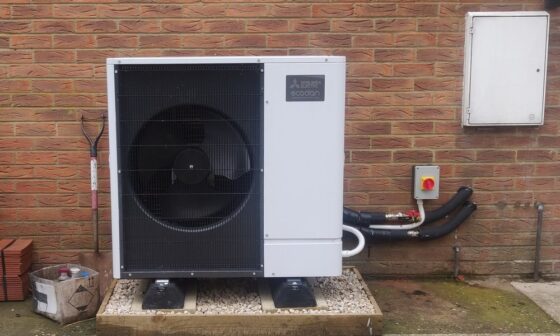As a landlord, ensuring the safety of your tenants is of utmost importance. One way to do this is by obtaining an Electrical Safety Certificate for your rental property.
What is an Electrical Safety Certificate?
An electrical safety certificate, also known as an Electrical Installation Condition Report (EICR), is a document that confirms the safety and compliance of the electrical installations in a rental property. It is an official record of the inspection and testing carried out by a qualified electrician.
Why is an Electrical Safety Certificate important?
An EIC is important because it ensures that the electrical installations in your rental property are safe and comply with the current electrical safety regulations.
It also protects you from legal liability in case of an electrical accident or injury caused by faulty electrical installations.
Furthermore, having a valid EIC is a legal requirement for landlords in England, under the Electrical Safety Standards in the Private Rented Sector (England) Regulations 2020.
Landlords are required to obtain an EIC every five years, or more frequently if recommended by the electrician.
How to obtain an Electrical Safety Certificate?
To obtain an EIC, you need to hire a qualified electrician who is registered with a competent person scheme, such as NICEIC.
The electrician will carry out a thorough inspection and testing of the electrical installations in your rental property.
The inspection will identify any defects or potential hazards, such as faulty wiring, outdated fuse boxes, or inadequate earthing. The electrician will then make recommendations for remedial works, if necessary.
Once the inspection and testing are complete, the electrician will provide you with an EICR, which includes a detailed report of the inspection findings and any remedial works required.
You must provide a copy of the EICR to your tenants within 28 days of the inspection, and to any new tenants before they move in.
What happens if the inspection identifies defects or hazards?
If the inspection identifies any defects or hazards, you must arrange for remedial works to be carried out as soon as possible. The electrician may be able to carry out the remedial works themselves, or you may need to hire another qualified electrician.
Once the remedial works are complete, the electrician will provide you with a report confirming that the electrical installations now comply with the safety regulations. You must then provide a copy of this report to your tenants within 28 days.
What are the consequences of not having an Electrical Safety Certificate?
If you fail to obtain an EICR , you could face a fine of up to £30,000 from your local authority. Furthermore, if an electrical accident or injury occurs as a result of faulty electrical installations in your rental property, you could be held liable and face legal action.
The different types of electrical inspections
In addition to Electrical Installation Condition Report (EICR), there are other types of electrical inspections that landlords may need to arrange for their rental properties.
These inspections can help to identify any potential hazards or defects that could pose a risk to tenants and ensure that the electrical installations are in safe working order.
1. Periodic Inspection and Testing
Periodic Inspection and Testing is a type of electrical inspection that involves a detailed assessment of the electrical installation in a rental property.
During the inspection, the electrician will test all of the electrical circuits and equipment to identify any defects or hazards that could pose a risk to tenants.
This inspection is particularly important for older properties or those that have not been inspected in a while.
2. Change of Tenancy Inspection
A Change of Tenancy Inspection is a type of inspection that is carried out when a new tenant moves into a property.
This inspection ensures that the electrical installation is safe and complies with current regulations.
Landlords should arrange for this inspection to be carried out by a qualified electrician before the new tenant moves in.
This inspection can help to identify any potential hazards or defects that could pose a risk to the new tenant.
3. HMO Electrical Safety Check
HMO Electrical Safety Checks are required for properties that are classified as Houses in Multiple Occupation (HMOs).
These properties have different regulations and requirements than other rental properties, and landlords must ensure that the electrical installation is safe and complies with HMO regulations.
This inspection is typically carried out by a qualified electrician and should be done every five years or at a frequency recommended by the electrician.
4. Portable Appliance Testing (PAT)
Portable Appliance Testing (PAT) is a type of inspection that involves testing electrical equipment such as appliances, tools, and machinery. This inspection is necessary to ensure that the equipment is safe to use and does not pose a risk to tenants.
Landlords must arrange for a qualified electrician to carry out PAT testing on all portable appliances in the rental property, and this should be done at regular intervals recommended by the electrician.
To Conclude
- Ensuring the safety of tenants is important for landlords, and one way to do this is to obtain an Electrical Safety Certificate (ESC) or Electrical Installation Condition Report (EICR).
- An ESC confirms the safety and compliance of the electrical installations in a rental property and is a legal requirement for landlords in England under the Electrical Safety Standards in the Private Rented Sector (England) Regulations 2020.
- To obtain an ESC, landlords must hire a qualified electrician who will conduct a thorough inspection and testing of the electrical installations.
- If any defects or hazards are found during the inspection, landlords must arrange for remedial works to be carried out as soon as possible.
- Landlords must provide a copy of the ESC to their tenants within 28 days of the inspection, and to any new tenants before they move in.
- Failure to obtain an ESC could result in a fine of up to £30,000 from the local authority, and landlords may also face legal action if an electrical accident or injury occurs as a result of faulty electrical installations.
- In addition to ESCs, there are other types of electrical inspections that landlords may need to arrange for their rental properties, including Periodic Inspection and Testing, Change of Tenancy Inspection, HMO Electrical Safety Check, and Portable Appliance Testing (PAT).



